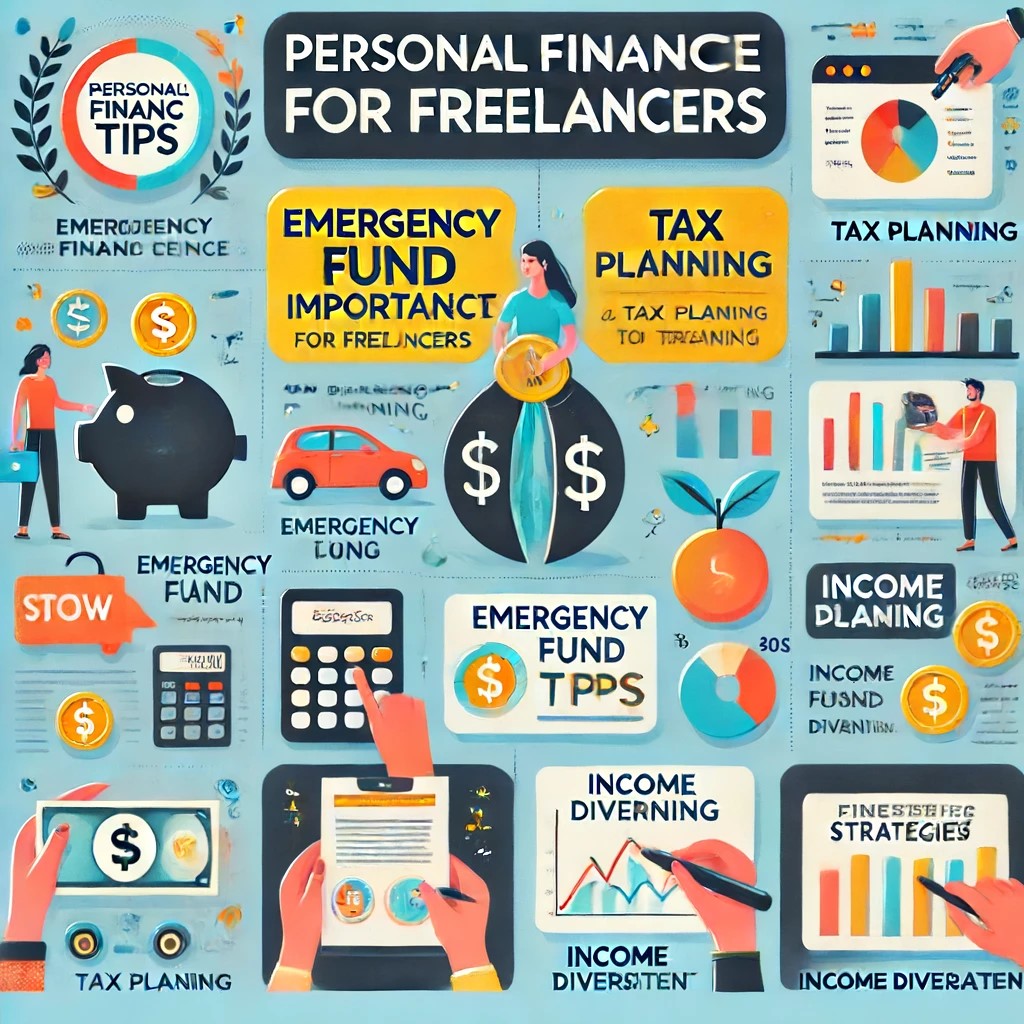In the rapidly evolving gig economy, freelancers and independent contractors face unique financial challenges. Unlike traditional employees, gig workers must navigate irregular income streams, lack of employer-sponsored benefits, and complex tax obligations. Effective personal finance management is crucial for achieving financial stability in this sector. This article provides essential personal finance tips tailored for freelancers and gig economy workers, highlighting current trends and offering insights into future financial strategies.

Building a Solid Financial Foundation
1. Establish an Emergency Fund: One of the first steps for any freelancer is to build an emergency fund. Given the unpredictable nature of freelance income, having a safety net is crucial. Financial experts recommend saving at least three to six months' worth of living expenses to cover unexpected downturns in income or emergency situations.
2. Structured Budgeting: Effective budgeting is vital. Freelancers should develop a budget that accounts for irregular income patterns. This might mean budgeting on a worst-case scenario basis or averaging income over several months. Tools like Mint or You Need a Budget (YNAB) can help manage cash flow and ensure that expenses are covered during leaner months.
3. Understand and Plan for Taxes: Unlike traditional employees, freelancers are responsible for calculating and paying their own taxes. Setting aside a portion of income in a separate account for tax obligations is essential to avoid large unexpected tax bills. Utilizing accounting software or consulting with a tax professional can help manage these financial responsibilities.

Investment and Retirement Planning
1. Retirement Savings: Without access to employer-sponsored retirement plans, freelancers need to proactively plan for retirement. Options like SEP IRAs, Solo 401(k)s, or traditional and Roth IRAs can offer tax advantages and help in building retirement savings.
2. Diversify Income Sources: Relying on a single client or income stream can be risky. Diversifying income sources not only helps in managing financial risk but also enhances income stability. Freelancers should consider different gigs, passive income streams, or even investing in the stock market or real estate as means to diversify.

Current Trends and Future Predictions
1. Increasing Professionalization: As the gig economy matures, there's a trend towards more professionalization. This includes the use of contracts, professional invoicing systems, and dedicated business banking accounts. These practices not only enhance the professionalism of a freelancer’s business but also help in better financial management.
2. Growth of Co-Working and Collaborative Spaces: Post-pandemic, there is a significant shift towards remote work and co-working spaces. These spaces often provide not just a place to work but also networking opportunities that can lead to new gigs and income sources.
Conclusion
Navigating personal finance as a freelancer or gig worker requires diligence and proactive management. By establishing a solid financial base, understanding tax obligations, and planning for the future, freelancers can create stability within the inherently unstable gig economy. As the sector continues to evolve, staying informed and adaptable to new trends and financial products will be key to achieving long-term financial success.




